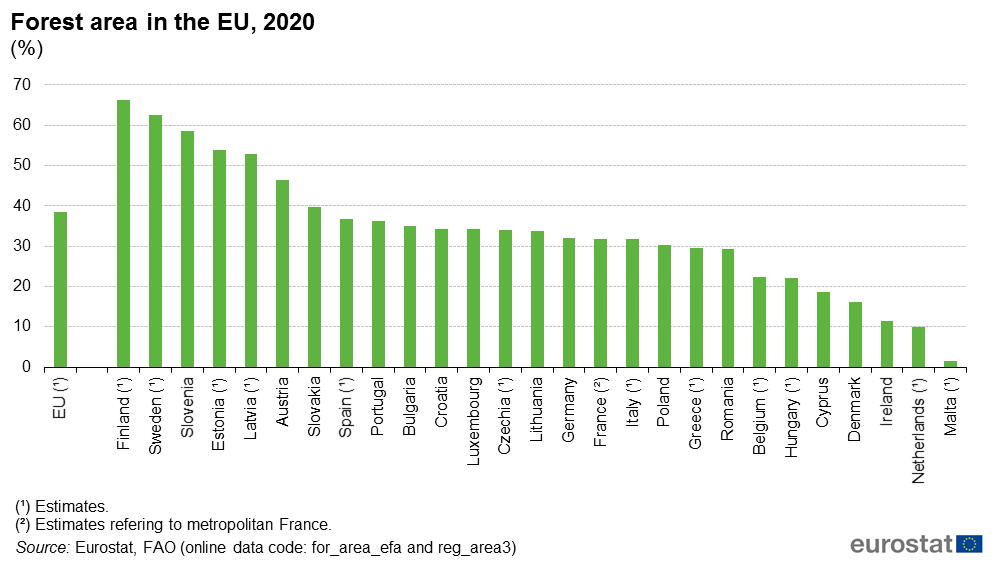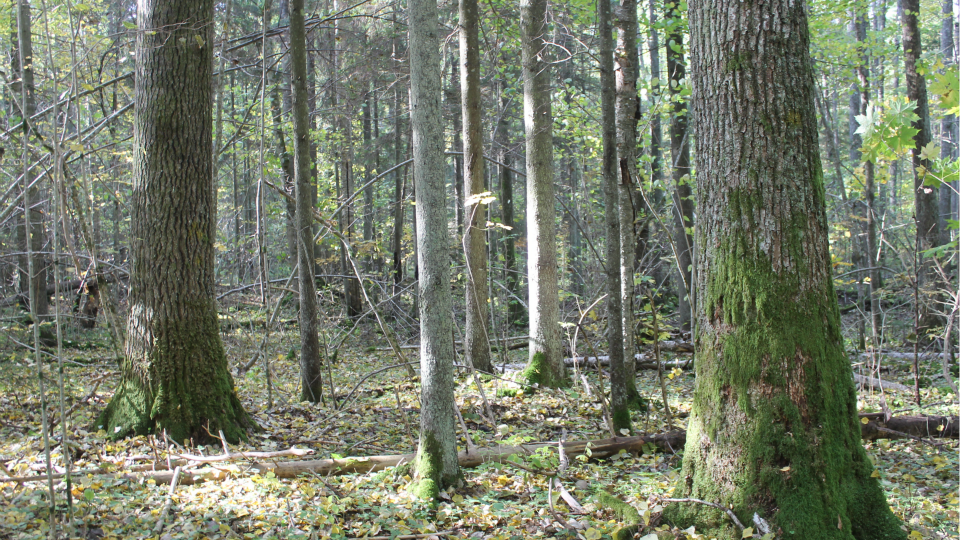Across the European Union, forests are reason a total of 3.6 million people across different fields had work in 2021. While total employment in the EU increased by 5.9% between 2011 and 2021, employment in the forestry sector decreased marginally in the same period (-0.4%).
With more than 159 million hectares of forest, the EU had 3.2 million people working in activities related to forestry and wood-based industry in 2021 (classified by NACE Rev. 2), and another 437 thousand self-employed people in that sector.
The activity that employed the most people was the manufacture of furniture, which recorded a total of 1.1 million employed people and 174 thousand self-employed people.
The second largest employer was the manufacture of wood and products of wood and cork (except furniture) and the manufacture of articles of straw and plaiting materials, with 1.0 million employed people and 153 thousand self-employed. The manufacture of paper and paper products came third with 615 thousand employed people and 15 thousand self-employed. Forestry and logging registered the smallest number of workers: almost 450 thousand employed people and 95 thousand self-employed.
For Latvia 5,900 people were employed in the manufacture of furniture, 19,700 people were employed in the manufacture of other wood products, and 14,100 in forestry and logging. No figure for paper manufacture was recorded, but the three combined figures represent around 40,000 jobs and don't even include the numerous other employment opportunities provided by forests such as tourism and recreation.

According to Eurostat data from 2020, 52.8% of Latvian land is forest – the fifth-largest proportion of total land area after Finland, Sweden, Slovenia and Estonia.
Total gross value added (GVA) generated by the forestry and logging industry in the EU was €23.2 billion in 2020. The GVA of the forestry and logging industry represented 0.17 % of the GDP of the EU in 2020, which was 19 % less than the share of 0.21 % in 2000. The GVA generated by forestry and logging accounted for more than 1% of GDP in four Member States in 2000: Sweden, Estonia, Latvia and Finland. In 2020, it was still the case for Latvia and Finland, and in Latvia the relative contribution of the GVA of forestry and logging increased during this period from 1.4% of GDP to 1.6% of GDP, the second-highest ratio behind Finland's 1.7% of GDP.
March 21 was International Day of Forests.





























